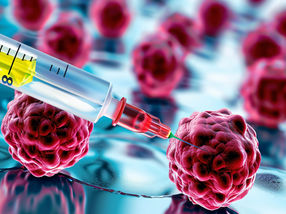Results in the RE-LY trial: novel oral direct thrombin inhibitor dabigatran etexilate beats warfarin
Boehringer Ingelheim announced data from the landmark RE-LY® study - the largest atrial fibrillation (AF) outcomes trial ever conducted (18,113 patients in 44 countries worldwide) - presented for the first time at the European Society of Cardiology Congress and published online in the New England Journal of Medicine. Results show that dabigatran etexilate 150mg BID significantly reduces the risk of stroke and systemic embolism by 34% (p<0.001) in patients with atrial fibrillation compared to well-controlled warfarin without increasing the risk of major bleeding. Dabigatran etexilate 110mg BID clearly demonstrated similar reductions in stroke and systemic embolism compared to well controlled warfarin while delivering an impressive 20% reduction (p=0.003) in major bleeding rates compared to warfarin.
Similarly impressive are the results in key secondary and other outcomes, including superior reduction in hemorrhagic strokes with both 150mg and 110mg BID doses (RRR 74%, p<0.001 and RRR 69%, p<0.001, respectively), and a reduction in vascular mortality with the 150mg BID dose (RRR 15%, p= 0.04). For safety, both doses showed a superior reduction in life threatening, intracranial and total bleeding. Importantly, these benefits occurred without hepatoxicity.
“The results of dabigatran in RE-LY® exceeded all our expectations. We now have an oral treatment which offers superior protection from stroke with less bleeding and without the need for routine monitoring. In addition to protecting patients from strokes, we as physicians are especially concerned about life-threatening or disabling bleeding with warfarin due to its narrow therapeutic window. On top of the efficacy, dabigatran has shown equally impressive safety results, offering a wider safety margin” commented Professor Stuart Connolly, co-principal investigator of RE-LY® and Director, Division of Cardiology at The Population Health Research Institute, McMaster University, Hamilton, Canada.
Organizations
Other news from the department research and development

Get the life science industry in your inbox
From now on, don't miss a thing: Our newsletter for biotechnology, pharma and life sciences brings you up to date every Tuesday and Thursday. The latest industry news, product highlights and innovations - compact and easy to understand in your inbox. Researched by us so you don't have to.






















































